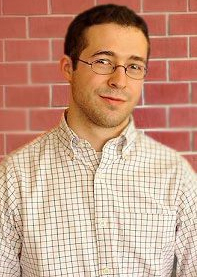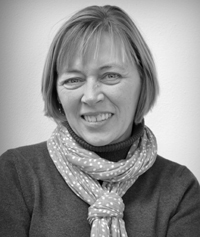Posted 8:20 p.m. Friday, Jan. 13, 2012

 [/caption]
[/caption]
‘The university is their laboratory’
Students share why they wanted an SAA degree
UW-La Crosse Graduate Student Richard Anderson owes his undergraduate degree to an academic adviser. That adviser prevented him from dropping out of college and helped him develop a plan to graduate in four years.
“That person quite literally changed my life, and I would love the opportunity to do the same for other students,” he explains.
That’s part of the reason Anderson applied to UW-L’s Student Affairs Administration Program. The two-year graduate program prepares students to work in student affairs positions in higher education. For Anderson it means eventually being able to land a career working with students in the university setting. Graduates go on to work in areas such as residence life, international education, career services, academic advising, admissions and other areas of the university that provide services to students.
About SAA
Founded in 1968, UW-L’s program is the oldest graduate program on the UW-L campus and it’s growing. The program recently became its own department and numbers continue to grow — particularly for the online program. Currently 36 students are taking the program in face-to-face classes and 54 are taking it online. The average online student is a female, age 30-35, taking the program while working full-time in a university setting. [caption id="attachment_638" align="alignright" width="200" caption="Jodie Rindt, chair of the SAA department"] [/caption]Unlike many other graduate programs, SAA is not connected to a specific set of undergraduate degrees. Undergraduate majors of current students range from Music to Pre-Med. SAA student Julie Hallman majored in dietetics at Iowa State University. But she knew she really wanted to serve as a mentor to students and realized an SAA program was a way to do that.
“UW-L looked like a great school on paper, but it wasn't until I visited campus for my interview that I really felt like this school was the right fit for me,” she explains.
One appealing quality of UW-L’s program is that the majority of instructors work in student affairs positions on the UW-L campus and share their real-world university experience. Those instructors include Dean of Students Paula Knudson; Nick Nicklaus, director of residence life; and Bob Hetzel, vice-chancellor for administration and finance.
“When we enter the classroom, we get the theoretical knowledge from our textbooks and the practical and applied knowledge from our instructors' daily experiences,” notes Anderson.
In addition, all students have part-time graduate assistantships in student service areas on campus and online students also have jobs in higher education. Students then share their work experiences during classroom or online discussions.
“The university is their laboratory,” says Jodie Rindt, the SAA department chair.
[/caption]Unlike many other graduate programs, SAA is not connected to a specific set of undergraduate degrees. Undergraduate majors of current students range from Music to Pre-Med. SAA student Julie Hallman majored in dietetics at Iowa State University. But she knew she really wanted to serve as a mentor to students and realized an SAA program was a way to do that.
“UW-L looked like a great school on paper, but it wasn't until I visited campus for my interview that I really felt like this school was the right fit for me,” she explains.
One appealing quality of UW-L’s program is that the majority of instructors work in student affairs positions on the UW-L campus and share their real-world university experience. Those instructors include Dean of Students Paula Knudson; Nick Nicklaus, director of residence life; and Bob Hetzel, vice-chancellor for administration and finance.
“When we enter the classroom, we get the theoretical knowledge from our textbooks and the practical and applied knowledge from our instructors' daily experiences,” notes Anderson.
In addition, all students have part-time graduate assistantships in student service areas on campus and online students also have jobs in higher education. Students then share their work experiences during classroom or online discussions.
“The university is their laboratory,” says Jodie Rindt, the SAA department chair.
